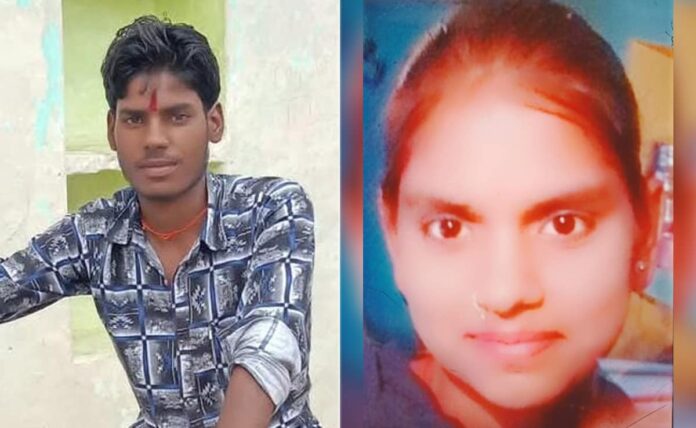Honor Killing in UP has yet again shocked the nation with the brutal murders of 19-year-old Kamini Sahu and her 22-year-old boyfriend Mithun Kushwaha in the Lalitpur district. Allegedly carried out by Kamini’s own family, this horrifying crime occurred on New Year’s Eve, reflecting the dark realities of caste-based and patriarchal oppression in Indian society.
The couple had been secretly meeting despite the disapproval of Kamini’s family and pressure from a village panchayat to stay apart. Their defiance of societal norms and familial objections tragically cost them their lives, as the family allegedly tried to portray the murders as a case of suicide. This incident raises grave concerns about the prevalence of honor killings and the lack of effective mechanisms to protect young couples in India.
What Drives Honor Killings In UP And Other States?
Honor killings are deeply rooted in societal notions of caste, religion, and patriarchal authority. Families often resort to violence when they perceive a relationship as dishonorable, particularly in cases where couples marry outside their caste or religion, or against family wishes.
In Uttar Pradesh, where this latest tragedy occurred, such cases are alarmingly common. The state has witnessed multiple incidents of honor killings over the years, fueled by rigid caste structures and societal expectations. Young individuals, particularly women, are often denied the freedom to choose their partners, with fatal consequences if they defy traditional norms.
The Role Of Village Panchayats And Caste Systems
Village panchayats or informal caste councils often play a significant role in escalating tensions between families and young couples. In the Lalitpur case, reports indicate that the village panchayat had already intervened, ordering Kamini and Mithun to stay apart. These councils, while lacking legal authority, hold immense social influence and often enforce regressive decisions that perpetuate violence.
Historically, caste systems in India have been a primary driver of honor-based violence. Relationships that cross caste boundaries are seen as an affront to community pride, prompting families to take extreme measures. Despite constitutional provisions guaranteeing the right to marry freely, societal pressures continue to enforce these outdated practices.
Historical Context Of Honor Killings In India
Honor killings are not a new phenomenon. References to caste-based violence and patriarchal control can be traced back centuries in Indian society. However, the term “honor killing” gained prominence in the late 20th century as activists and human rights organizations began documenting such crimes more systematically.
One of the most infamous cases in India was the Manoj-Babli case of 2007, where a young couple from Haryana was brutally murdered for marrying within the same gotra (clan). This case brought national attention to honor killings and led to significant legal developments, including the Supreme Court’s condemnation of such acts and stricter penalties for those involved.
Despite these advancements, the enforcement of laws remains weak, and many cases go unreported due to societal stigma and the involvement of family members in the crime.
The Legal Framework To Tackle Honor Killings
Indian law recognizes honor killings as a form of murder, punishable under Section 302 of the Indian Penal Code (IPC). The Supreme Court has also issued guidelines to protect couples at risk of honor-based violence, including provisions for safe houses and police protection.
In cases like the Lalitpur murders, timely intervention by law enforcement could potentially save lives. However, systemic challenges such as corruption, lack of awareness, and societal apathy often hinder the effective implementation of these measures.
Organizations and activists have repeatedly called for stronger legal protections and stricter enforcement to address the root causes of honor killings. Education and awareness campaigns targeting rural and semi-urban areas are also crucial in dismantling the cultural norms that perpetuate such violence.
The Psychological And Social Impact Of Honor Killings In UP
Honor killings not only claim lives but also leave lasting scars on families and communities. The fear of violence discourages many young people from pursuing relationships of their choice, reinforcing cycles of oppression and inequality.
For survivors of such violence—whether they are the intended victims who escape or the siblings and relatives left behind—the trauma is profound. Families are often ostracized by their communities, and survivors may face threats and harassment long after the incident.
Society as a whole pays a heavy price, as honor killings undermine fundamental rights and freedoms, perpetuating a culture of fear and control. The Lalitpur tragedy is a stark reminder of the urgent need to address these issues through education, advocacy, and systemic change.
Preventing Future Tragedies Like The Lalitpur Murders
To prevent incidents like the Lalitpur murders, a multifaceted approach is needed. First and foremost, young individuals must be empowered to exercise their constitutional rights without fear of violence or retribution. This includes ensuring access to education, legal aid, and safe spaces for at-risk couples.
Secondly, families and communities need to be educated about the importance of personal freedom and the harm caused by rigid societal norms. Public awareness campaigns that challenge caste-based discrimination and patriarchal control can help foster a more inclusive and accepting society.
Lastly, law enforcement agencies must be equipped to respond swiftly and effectively to cases of honor-based violence. This includes providing training to police officers, strengthening witness protection programs, and holding perpetrators accountable regardless of their social or political influence.
The tragic deaths of Kamini Sahu and Mithun Kushwaha are a stark reminder of the cost of upholding outdated notions of honor. Their story must serve as a wake-up call for society to reflect on its values and take decisive action to prevent further loss of life.
Honor Killing in UP is not just a crime; it is a symptom of deeper societal issues that demand urgent and collective attention. By addressing the root causes and supporting those who challenge oppressive norms, we can build a future where love and individuality are celebrated, not punished.

